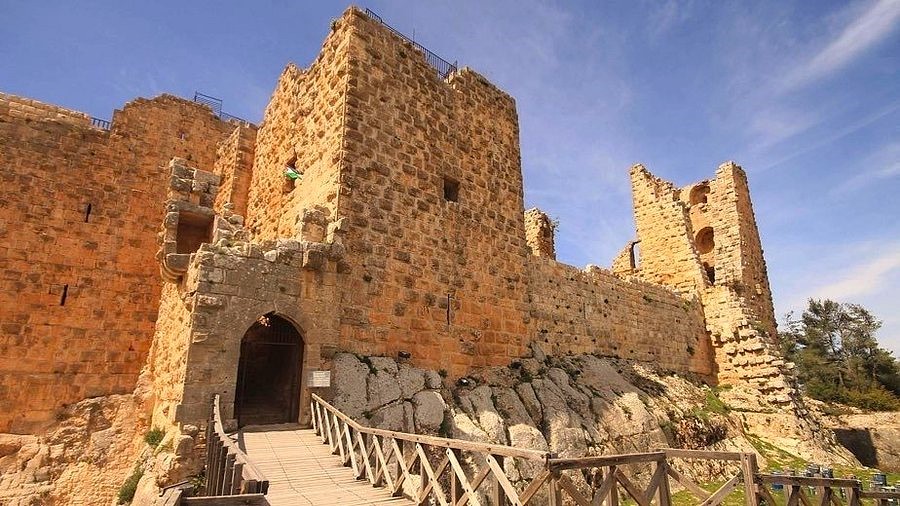
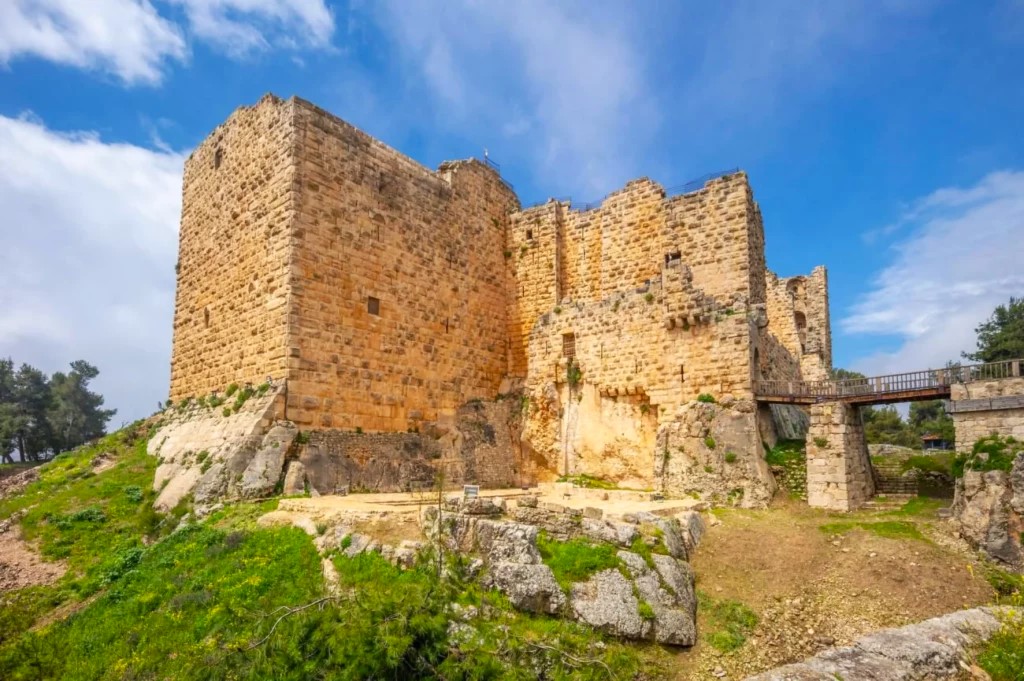 AJLOUN CASTLE
AJLOUN CASTLE
Ajloun is a captivating highland region in northern Jordan, where lush green landscapes, historic fortresses, and authentic village life converge into one of the country’s most underrated yet awe-inspiring destinations. Unlike Jordan’s arid deserts or the modern bustle of Amman, Ajloun offers visitors a tranquil escape into rolling hills blanketed in oak and pine forests, rich biodiversity, and deep cultural roots.
In Ajloun, you'll walk through landscapes that have remained nearly unchanged for centuries. Ancient Byzantine churches, Crusader-era castles, and stone houses dot the countryside, standing as testaments to the civilizations that once passed through these hills.
As home to one of Jordan’s most vital nature reserves, Ajloun Forest Reserve, the area plays a key role in preserving endangered species, native plant life, and sustainable eco-tourism practices. The air is crisp and clean, the scent of wild herbs and pine fills the trails, and the sounds of nature replace city noise.
Ajloun isn’t just a place to see — it’s a place to experience. Visitors are welcomed into local homes with Arabic coffee, warm bread, and heartfelt hospitality. Through eco-lodges and homestays, travelers connect directly with Jordanian village life, participate in olive harvests, or learn traditional crafts from local women’s cooperatives.
Top Attractions in Ajloun:
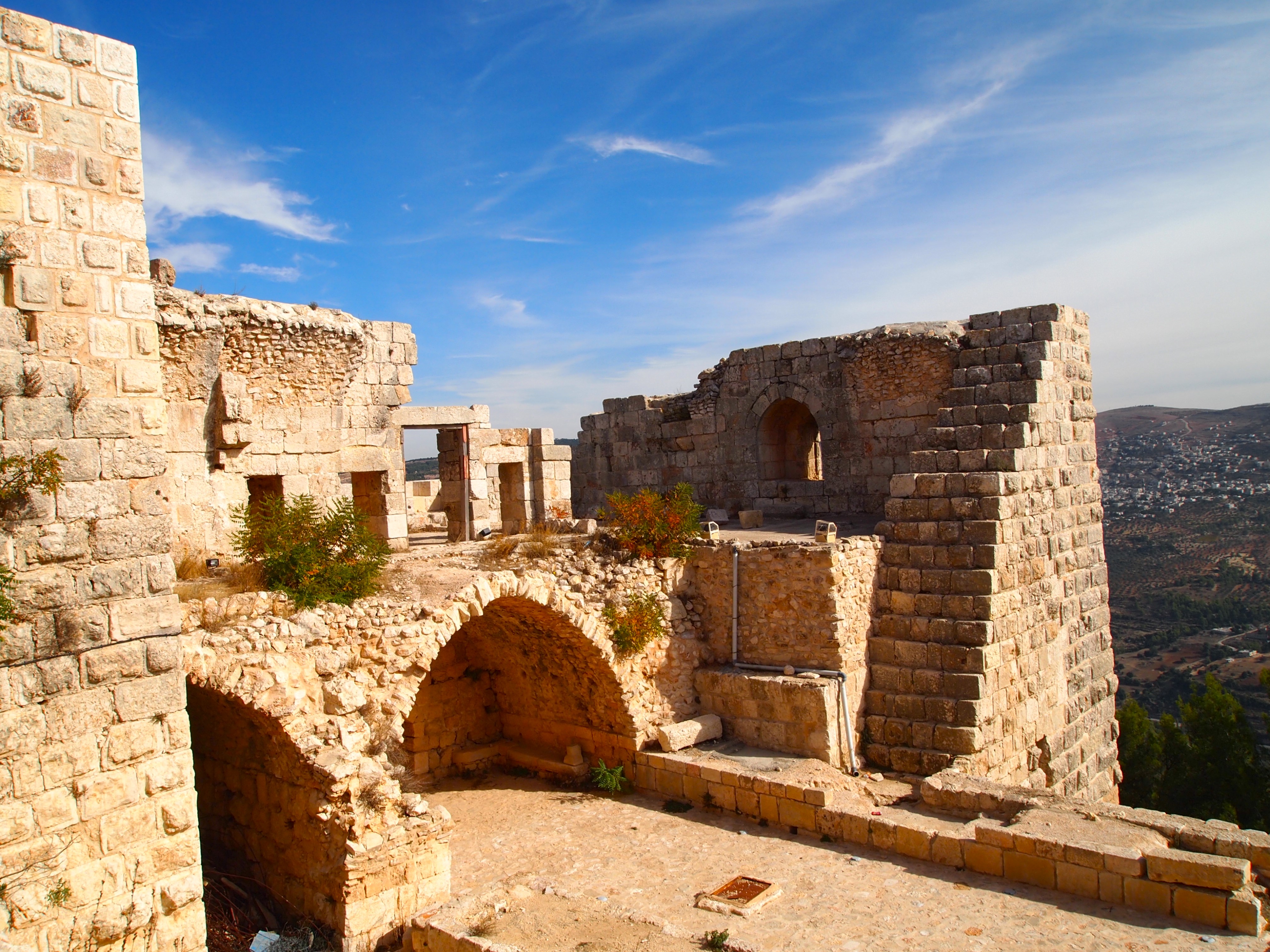
Ajloun Castle (Qal'at ar-Rabad)
Ajloun Castle, also known as Qal'at ar-Rabad (قلعة الربض), is a 12th-century Islamic fortress located in the Ajloun Governorate of northern Jordan. Perched atop Mount Auf (also called Jabal ‘Auf), at an elevation of around 1,250 meters (4,100 feet) above sea level, the castle offers sweeping views of the Jordan Valley, the West Bank, and even parts of Lebanon and Syria on clear days.
Ajloun Castle was constructed in 1184–1185 CE by Izz ad-Din Usama, a general and nephew of the legendary Islamic leader Salah ad-Din (Saladin). The castle served a vital strategic role:
Despite damage from earthquakes in 1837 and 1927, the castle has been carefully restored and preserved, now including walkable ramparts, underground chambers, and a small archaeological museum with pottery, coins, and ancient weapons.
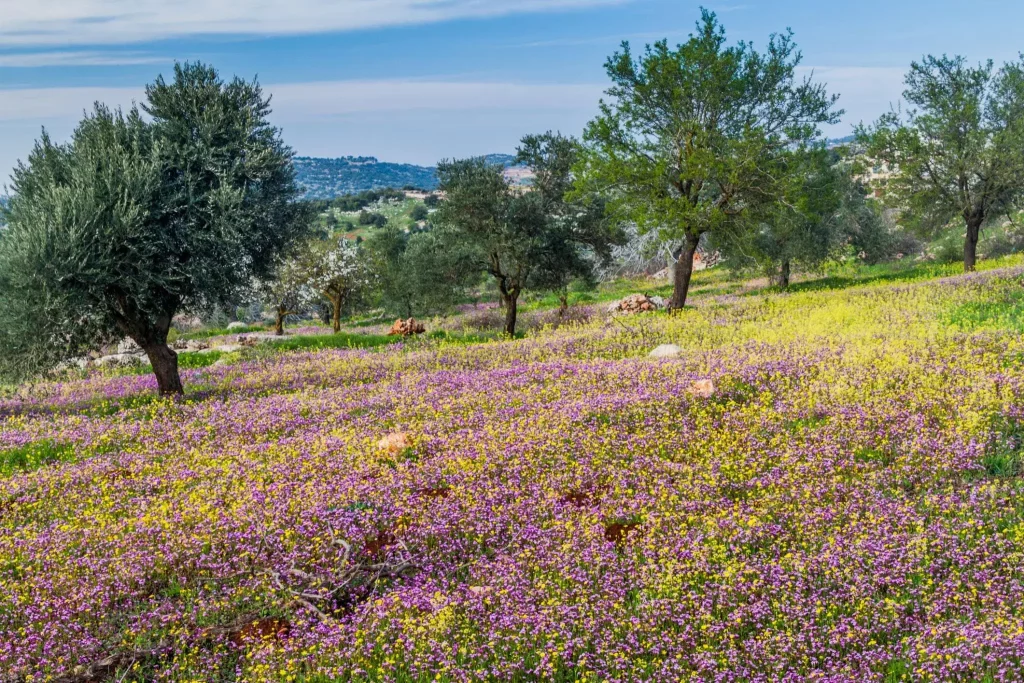 Ajloun Forest Reserve (Managed by RSCN)
Ajloun Forest Reserve (Managed by RSCN)
Ajloun Forest Reserve is a protected natural area located in the highlands of northern Jordan, covering about 13 square kilometers (5 square miles). It is managed by the Royal Society for the Conservation of Nature (RSCN), an organization committed to preserving Jordan’s unique ecosystems while empowering local communities.
Established in 1988, the reserve is one of the few places in Jordan where dense forests still thrive — a green sanctuary that stands in contrast to the country’s more arid and desert landscapes. Ajloun Forest Reserve is one of the last remaining natural woodlands in Jordan, home to Mediterranean evergreen trees and rare wildlife. The area is an important refuge for plants and animals that are endangered or disappearing from other parts of the country.
The Royal Society for the Conservation of Nature (RSCN) has transformed Ajloun from an area once threatened by deforestation into a model of sustainable development.
_1.jpg)
Mar Elias (Elijah’s Hill)
Mar Elias, also known as Elijah’s Hill, is a major Christian pilgrimage site located near Ajloun, Jordan. It is believed to be the birthplace of the Prophet Elijah (or Elias), a revered figure in Christianity, Islam, and Judaism. The site features ruins of two ancient Byzantine churches, along with remnants of monasteries and mosaics, all set on a scenic hill with sweeping views over the Ajloun highlands.
Location:
Religious & Biblical Significance
Elijah (known as Elias in Greek and Arabic: إلياس) is a prophet mentioned in the Old Testament, Qur’an, and Jewish Talmud. He is known for:
Mar Elias is believed to be where Elijah was born and lived before beginning his prophetic mission, making it one of the holiest Christian sites in Jordan.
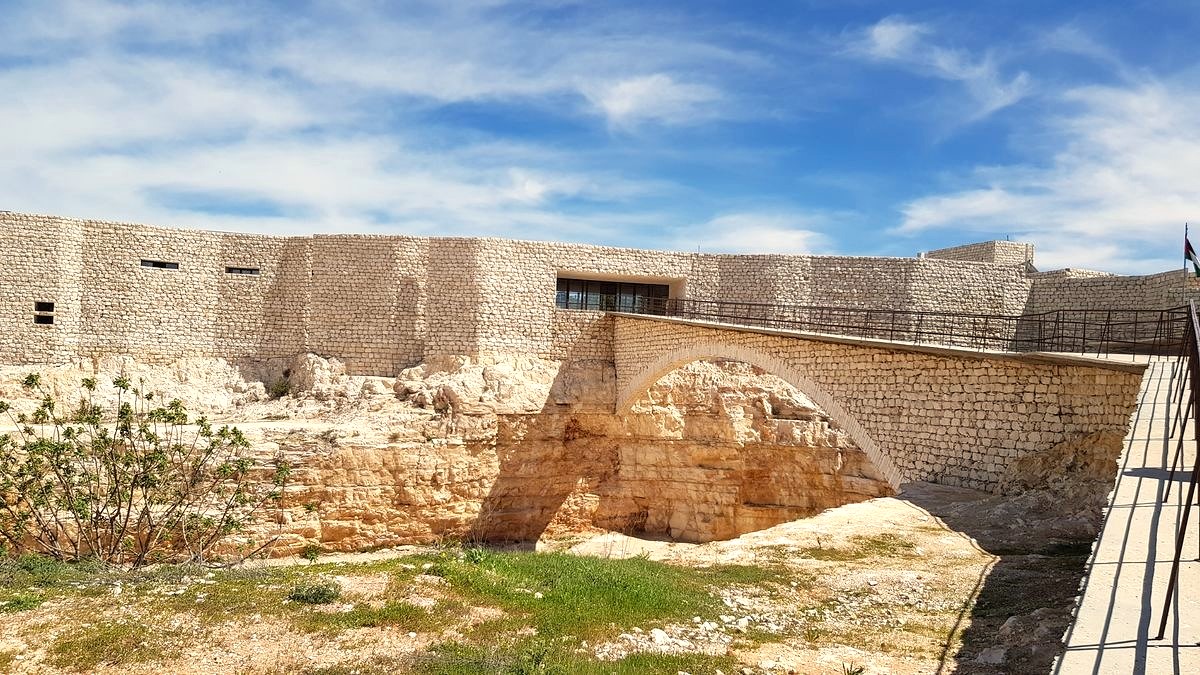 Soap House & Biscuit House (Ajloun Nature Center):
Soap House & Biscuit House (Ajloun Nature Center):
The Soap House and Biscuit House are two unique cultural and culinary experiences located within the Ajloun Forest Reserve, Jordan. These establishments are part of the Ajloun Nature Center, managed by the Royal Society for the Conservation of Nature (RSCN). They offer visitors a chance to explore traditional crafts, support local communities, and enjoy authentic Jordanian flavors.
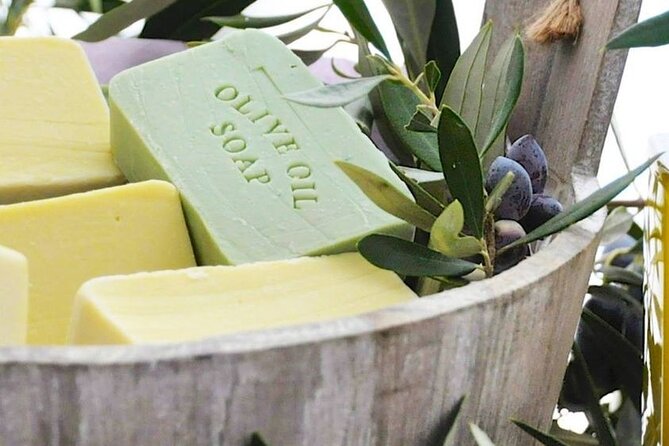
Soap House: Traditional Olive Oil Soap-Making
The Soap House, situated in the village of Orjan, is renowned for its traditional olive oil soap-making process. Local women produce high-quality soaps using natural ingredients like olive oil, herbs, and pomegranate. Visitors can participate in hands-on workshops to learn about the soap-making process, gaining insight into sustainable practices and local craftsmanship. The Soap House also features a gift shop where visitors can purchase handmade soaps and related products, supporting local artisans and promoting eco-friendly practices. In 2023, the Arab Bank partnered with RSCN to introduce liquid olive oil soap production at the Soap House, enhancing its offerings and supporting local economic development.
The Soap House Trail is a marked hiking route that begins at the Ajloun Forest Reserve Visitor Center and leads to the Soap House in Orjan. The trail meanders through dense woodlands filled with oak, pistachio, and strawberry trees, offering hikers a chance to immerse themselves in the natural beauty of the area. Along the way, visitors can enjoy panoramic views from Eagle's View Point and explore historical sites like a ruined wine press.
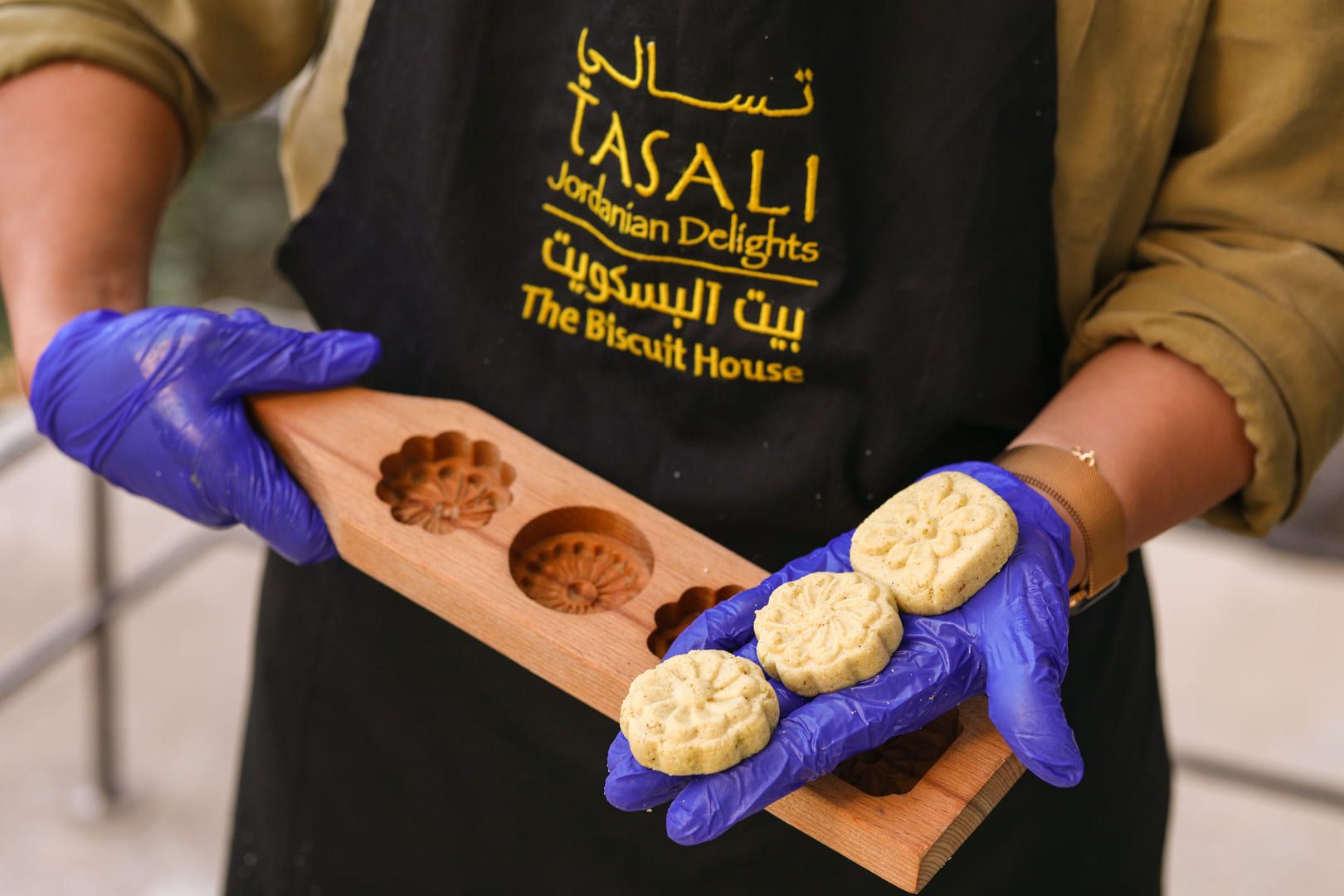
Biscuit House: Artisanal Baking with Local Ingredients
The Biscuit House, also located in Orjan, specializes in crafting artisanal biscuits using locally sourced ingredients. The establishment offers a variety of biscuits, including chocolate, pistachio, peanut, date, and dried fruit varieties, all made fresh daily without artificial additives.
Visitors can enjoy a guided experience where they can learn to bake traditional Jordanian bread, such as kusmat, a northern delicacy often prepared during holidays and joyous occasions. The experience includes baking the bread using locally harvested olive oil and enjoying the freshly baked goods with a cup of aromatic tea amidst the scenic views of the Ajloun Forest Reserve.
Supporting Local Communities:
Both the Soap House and Biscuit House play a vital role in supporting the local communities of Orjan. By engaging in traditional crafts and culinary practices, these establishments provide economic opportunities for local women and promote sustainable tourism. Visitors not only gain cultural insights but also contribute to the preservation of local heritage and the empowerment of community members.
Things to Do in Ajloun:
Why Visit Ajloun?
Ajloun is one of Jordan’s most underrated treasures — a place where history, nature, and culture blend seamlessly to create a destination that’s both peaceful and powerful. While most visitors flock to Petra and Wadi Rum, those who journey north to Ajloun discover a completely different side of the country — one that’s lush, green, cool, and deeply rooted in tradition.
Travel Tips: